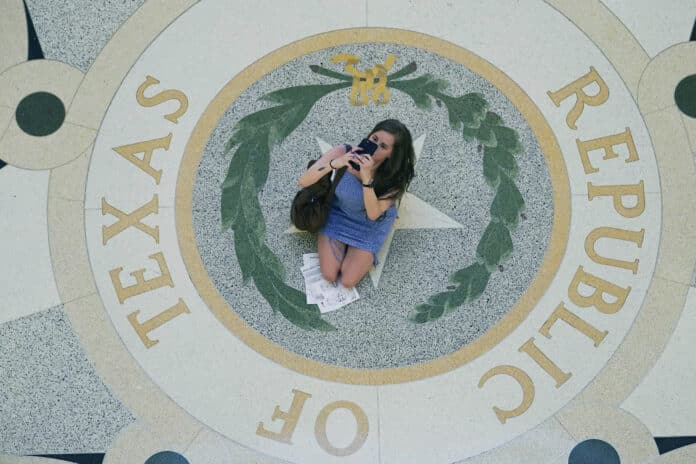
When the Texas Legislature convened earlier this year, the governing body was meeting in unprecedented times: during a pandemic that gripped the country and state, resulting in death, hardship and economic woes.
Then, in mid-February, just a month into the session, the devastating freeze hit the state resulting in millions of people losing power for days after Texas’ power grid failed.
As legislators met, they had to tackle these crises’ while conducting their regular work passing legislation to benefit their constituents during a session unlike any in recent memory.
And while that’s true, the 2021 legislative session was also like the states’ recent sessions as well with conservative Republicans grabbing headlines with abortion and gun legislation that Democrats loudly criticized.
While the pandemic, freeze and widely publicized and deeply controversial legislation controlled much of the conversation around the Legislature, work did get done.
Here is a look at bills passed that will benefit the Rio Grande Valley in a variety of ways, from legislation impacting international bridges to a new law that will better help residents here understand the early spread of COVID-19 through nursing homes and assisted living facilities.
BUILDING BRIDGES
After years of planning improvements and expansions at the Pharr International Bridge, the city in late 2020 submitted an application for a Presidential Permit Amendment to allow for the expansion project that was supported by both the Mexican and United States governments.

photo by Gabe Hernandez/[email protected]
That permit was approved, helping the city avoid a long permitting process with the Texas Transportation Commission and the federal government that can take years.
Now, a new law provides all existing bridges in the Rio Grande Valley the ability to circumvent that time cumbersome process.
Senate Bill 2243, authored by Sen. Juan “Chuy” Hinojosa, amends Transportation Code by exempting existing bridges from commission approval for improvements or reconstruction.
The city of Pharr lauded the passage in a news release, citing how ports of entry and international bridges on the border are strong economic engines from the local to the national level while noting that trade between Texas and Mexico has grown rapidly in the last 20 years, with a 267% increase from $58 billion in 1994 to $213 billion in 2019.
With the huge increase in trade, it’s only logical that the region’s international bridges will need to expand, modify and upgrade to keep up with those needs.
“Our ports of entry are gateways to the Texas economy and supporting our international bridges has been one of my priorities this session. I authored SB 2243 to provide relief to the City of Pharr from having to obtain both a federal and state permit eliminating duplication, saving taxpayer funds, and expediting construction of the expansion of the Pharr bridge. I appreciate Mayor Dr. Ambrosio Hernandez for bringing this issue to our attention and to his staff for working with us to get this bill to the Governor’s desk,” Hinojosa said in the news release.
The city also credited the work of Sen. Eddie Lucio Jr. and state Rep. Terry Canales for working to get the bill, which was filed late as an emergency bill, through each chamber.
The legislation is on its way to Gov. Greg Abbott’s desk for his signature.
PAYING FOR IT
While the exemption for expansion on existing bridges is a win for the Rio Grande Valley, those modifications still need to be funded.
On May 18, Abbott signed Senate Bill 1334, which will do just that — effective immediately.
This legislation addresses funding mechanisms for investing in port of entry infrastructure.
The law amends Transportation Code to allow counties bordering to Rio Grande to use negotiable bonds or the proceeds from bond sales to “construct, improve, enlarge, or equip in whole or in part a toll bridge or a related building, structure, or other facility,” the city of Pharr said in a news release.
The use or sale of bonds can also be used to acquire such a building.
RELIEVING CONGESTION
The Pharr International Bridge is one of the busiest ports of entry in the United States, ranking third in trade with Mexico in the entire country and is the seventh-largest and fastest-growing port of entry in the nation.
One contributor to that success is the Trade Agricultural Inspection Grant Program, which is a grant that helps fund for additional inspectors.
House Bill 1371 was passed this session and will renew the program through 2025.
The program has established itself as a way to reduce long wait times at the Pharr International Bridges.
“The coupling of population increase and an upsurge in demand for fresh and healthy produce has put a burden on the agricultural inspection procedures at the South Texas-Mexico ports of entry. The shortage of agriculture inspectors at the Texas-Mexico border causes congestion — significant due to the slowdown of commerce and the delayed inspection of perishable produce,” the city of Pharr said in a news release.
Cindy Garza-Reyes, director of external affairs for the city and the bridge, said the program eliminates the risk of trucks being halted and left at inspection docks overnight only to be processed the following morning.
“What is key about this project is that not only are local community stakeholders invested in this program but communities and private business outside of our region are also invested in eliminating any disruption within the supply chain process. This project will help alleviate wait times and increase our economic trade capacity,” Garza said.
IMPROVING ACCESS
The Rio Grande Valley’s persistent problem with diabetes being prevalent in its population is no secret.
A bill authored by State Rep. Eddie Lucio III aims to provide more access to Valley residents to doctors specializing in the care of the foot and ankle through the first school of podiatry in the state, which will be at the University of Texas Rio Grande Valley.
House Bill 2509 expands the definition of a graduate medical education program to include a nationally accredited post-doctor of podiatric medicine program that prepares for podiatrists for independent practice in this specialty field.
“This will be the first school of podiatry in Texas and will allow students to pursue careers in the medical and surgical care of the foot and ankle — an important specialization for the valley and other areas of the state with high incidence of diabetes and related diseases of the lower extremities. The school will partner with one or more teaching hospitals in the area to establish residency-training programs in podiatry,” the bill’s analysis states.
SHINING LIGHT
In the early days of the pandemic, it became clear to the community and to journalists reporting on their community, that the virus was spreading through nursing homes.
However, just how widespread COVID-19 was in nursing homes and in assistant living facilities remained secret, with officials arguing that federal medical privacy laws prevented the public disclosure of this information.
“As the COVID-19 pandemic struck nursing homes and other long-term care centers beginning in spring 2020, residents and their loved ones sought answers about whether these facilities were safe,” Senate Bill 930’s analysis states.
Residents received nothing but roadblocks.
“Many nursing homes were not forthcoming with information about coronavirus outbreaks. Family members, advocates, persons with disabilities and the elderly, and journalists asked state and local government officials which Texas facilities had experienced COVID-19 outbreaks, but they ran into information roadblocks,” the analysis says.
Numerous Texas Public Information Act requests were filed with the Texas Health and Human Services Commission, which sought to block the release of data arguing to the Texas Attorney General’s Office that federal medical privacy laws prevented revealing even the names and location of nursing homes and listing centers with outbreaks and statistical data for those locations.
“Even after some requestors clarified that they were not seeking individual health information — only the identity of facilities where the illness had been detected — the information was still withheld from the public,” the analysis states.
In July 2020, the AG ruled that HHSC must identify the facilities and the agency began posting the data on its website, but separate AG rulings allowed local health authorities to withhold such information.
Senate Bill 930, which has been signed by the governor, clarifies that unless made confidential under a different law, the name or location of a nursing home or similar facility where residents have been diagnosed with a communicable disease and the number of residents diagnosed is not confidential and is subject to disclosure by state agencies and local health authorities under the Texas Public Information Act.



